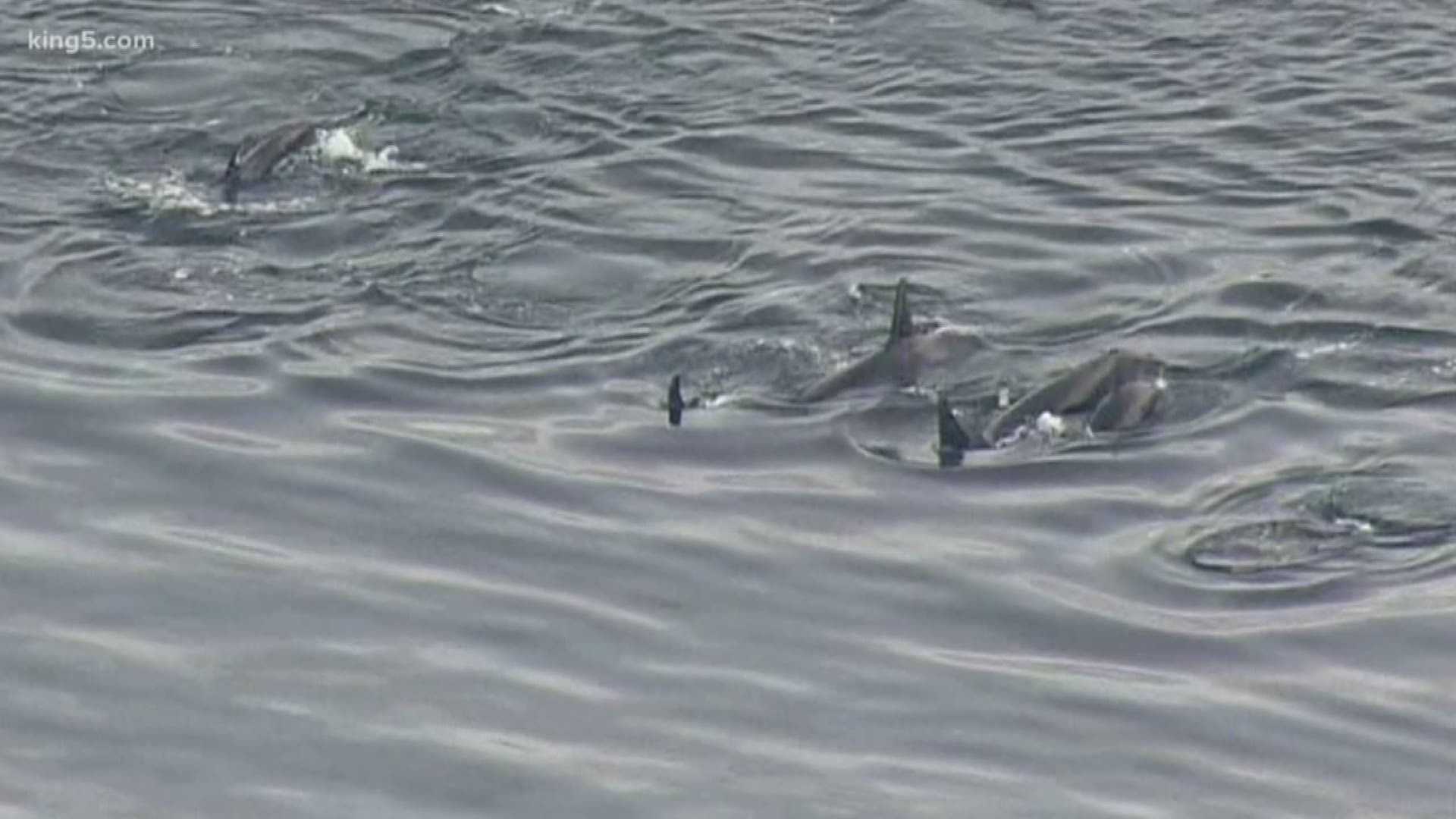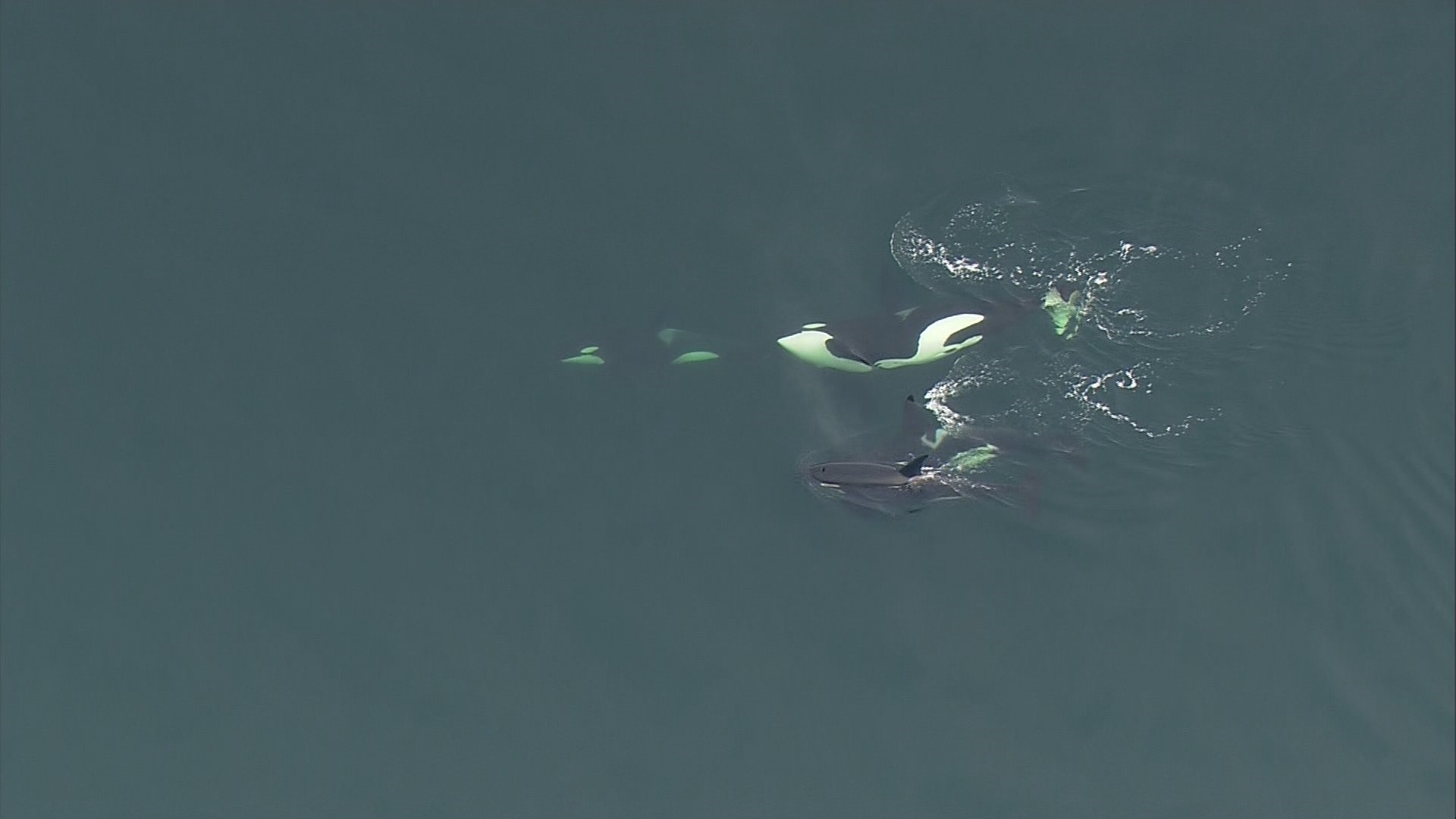Researchers identified a new calf swimming with the Southern Resident killer whales. The orca was seen beside L77, who was pregnant.
The calf was named L124, or "Lucky."
“I’m hopeful. Anything that brings attention to these whales and their predicament is good news,” Center for Whale Research Founder Ken Balcomb said. “Only a few people used to be interested.”
Balcomb confirmed Friday that the orca calf is the latest addition to L Pod. The calf is several weeks old and "energetic," he reports. "So we hope to see it survive."
On Thursday, the K Pod and L Pod whales were swimming near Vashon Island when KING 5 helicopter video gave researchers their first sighting of the calf. They do not know its sex yet. Researchers are hoping to determine that by photographs they’re taking of the whales.
“I don’t want to rain on the parade, but the real statistic is when this calf reaches the age of sexual maturity which is a decade or more from now, that’s when we should be counting,” Balcomb said. “A little more than half historically. Neonate mortality is about 40 percent.”
On Friday morning, the L and K pods were swimming in the eastern Strait of Juan de Fuca heading toward Victoria.
There are two other pregnant whales in K Pod and J Pod who have not yet given birth.
K25, a male whale observed to be potentially fatally ill, is still alive. He is suffering from peanut head, a condition that results from weight loss begins the skull.
The calf was identified on the same day orca advocates were in Olympia asking wildlife officials to consider the need for more salmon to feed the whales.
"It is bittersweet though because we know that 50 percent or more of newborn calves don't make it," said Wild Orca Science and Research Director Dr. Deborah Giles. "Getting a handle on fisheries management is really, really, super critical along with all of the other things that people are focusing on now."
Giles told the Washington Fish and Wildlife Commission that the whales each need 350 lbs of fish per day, which adds up to about 405,000 fish per year for the entire three pods.
"Right now they don't get that. They are kind of factored into this black box that is the ocean conditions and what we are asking for is, just like the other stakeholders that have a vested interest in having access to a certain amount of fish, we would like the whales to be factored in as well," Giles said. "The most critical and the fastest way to make sure the whales survive is to make sure we leave adult fish in the system for them. Engaging with the fishing community, I would very much welcome that. I think we need to be sitting down together. We need to have these dialogues."
According to WDFW Fish Program Manager Ron Warren, the state typically has looked to the federal government for guidance.
"How we had done that in the past is that we would develop fisheries and say, 'There is our fishery package, National Marine Fisheries Service. Can you tell us that it either does not meet jeopardy standard or does and then write your biological opinion?' Instead, now we are going to look at each of those marine areas and know that we can say, 'Yes, those fisheries are OK for salmon and Southern Resident killer whales," Warren said.
Commissioners voted to add language protecting the whales to the North of Falcon process, the yearly set of tribal and state meetings that set the salmon fishing regulations.
"Like last year for 2018, in 2019 there might be areas that we stop fishing activities or restrict access to have protection for Southern Resident killer whales," Warren said. "They know that cutting fisheries has a benefit to whales. What they said that I remember out of that document was, it isn't the full gamut of issues that needs to be changed to achieve recovery. That is what we are trying to do."


